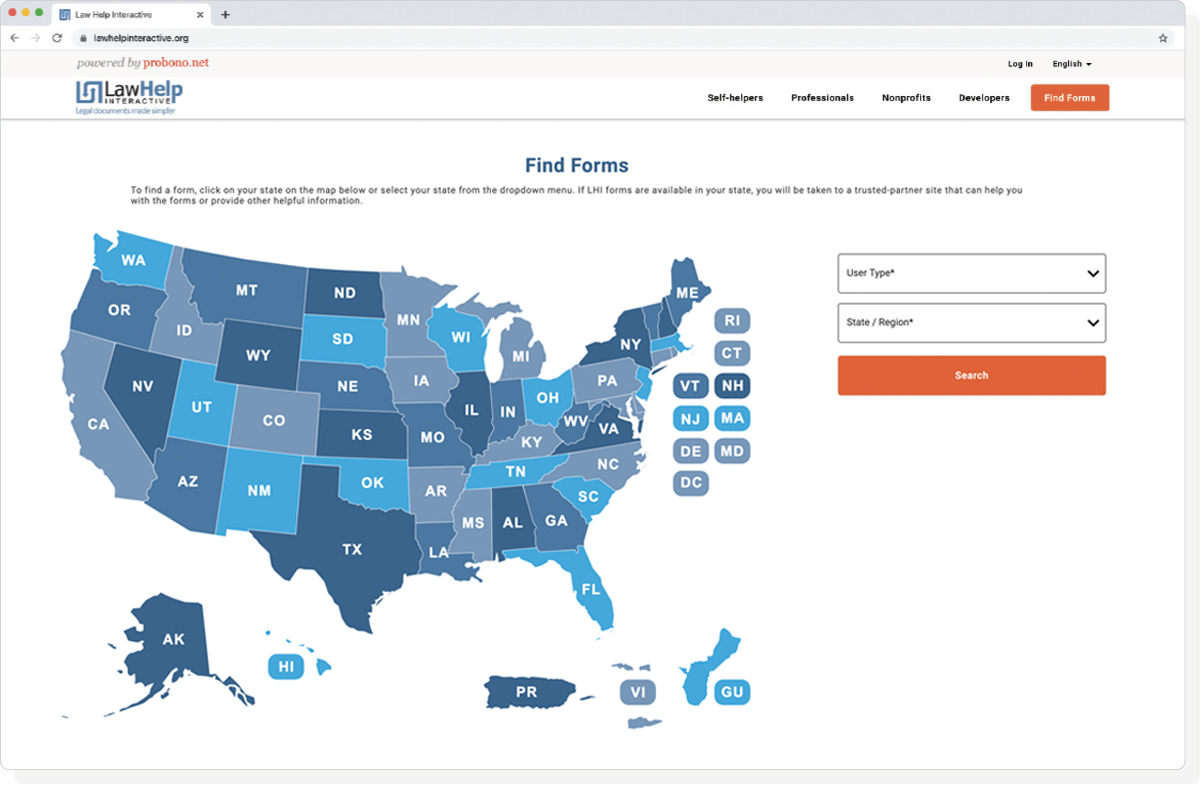Lessons she learned as a legal aid hotline manager several years ago launched a career at LawHelp Interactive, where, with the help of technology, Johnson gets everyday Americans the legal aid they need and deserve.
“I’m not a technophile, I’m a lawyer,” she said. “But give me a tool that will make a difference, and I will adopt and use it and exploit it to fight poverty.”
Johnson had already been involved in pro bono work in San Francisco when she joined, in 2004, Bay Area Legal Aid (BALA), a consolidation of 7 nonprofits into one overarching organization. She served as the Managing Attorney for its civil legal advice hotline. Johnson was tasked with creating the Legal Aid Line (LAL) from scratch. Her first decision was to design it with multilingual capacity, skill routing, and then hiring and training a team of lawyers to directly answer legal queries on the hotline and devising new protocols for handling and managing those calls.
Pro Bono Net
The Legal Aid Line allowed BALA to detect problems that affected underserved groups sooner and address them before they impacted a large number of families. For example, her team discovered an Oakland landlord trying to improperly oust a group of Cantonese and Mandarin-speaking tenants after their tax subsidies ended. Another spate of calls exposed police officers engaged in racial harassment in a suburb in Contra Costa County.
Johnson said she learned the value of humility and consistently seeking improvements to the hotline’s legal services. That involved taking weekly road trips across the Bay Area to hear feedback from different communities and agencies. She also invited legal experts from BALA to train her lawyers in specific areas of law. Because of her and her team’s willingness to learn and change, Johnson developed positive relationships across her 150-square-mile territory. “A database of 900 groups were sending stuff to us,” she said.


Under Claudia Johnson’s L’97 leadership, the LawHelp Interactive online site has provided nearly 5 million free legal forms.
The enormous amount of funding needed for pro bono work to make a lasting impact, she said, creates a partial solution. “Then what’s the other option? Technology,” Johnson said. She noticed how, before BayLegal started the Legal Aid Line, caseloads were declining. The hotline’s technology transformed access to legal aid: According to the organization, calls swelled from about 35 to more than 150 per day, while the number of clients who received counsel or referrals increased by more than 50 percent.
“I had seen everything technology had done and became a believer that technology is the most effective way to close the justice gap,” she said, “and since law is all about papers — which I hate — I figured the technology that makes creating forms and pleadings faster and with lower marginal costs, is the technology that’s going to win.”
Enter the LawHelp Interactive project, which is a website free to the general public that autofills legal forms based on answers from online questionnaires. The site assists with a range of civil poverty law matters, including issues surrounding education, housing, insurance and employment. For example, Johnson said, the website can help you write a letter for a security deposit to a landlord, file an appeal for medication or fill out a child support modification form, at all levels of complexity. Since 2008, when Johnson joined Law Help Interactive, it has conducted nearly 9 million guided interviews and created nearly 5 million free documents.
“I’m not going to say technology is going to fix it all, but God, it’s a powerful weapon against poverty and lack of sufficient legal services for the poor and vulnerable,” Johnson said. “It can really help bring sophisticated and on-point resources to the millions of people who are out there facing civil legal crises on their own.”